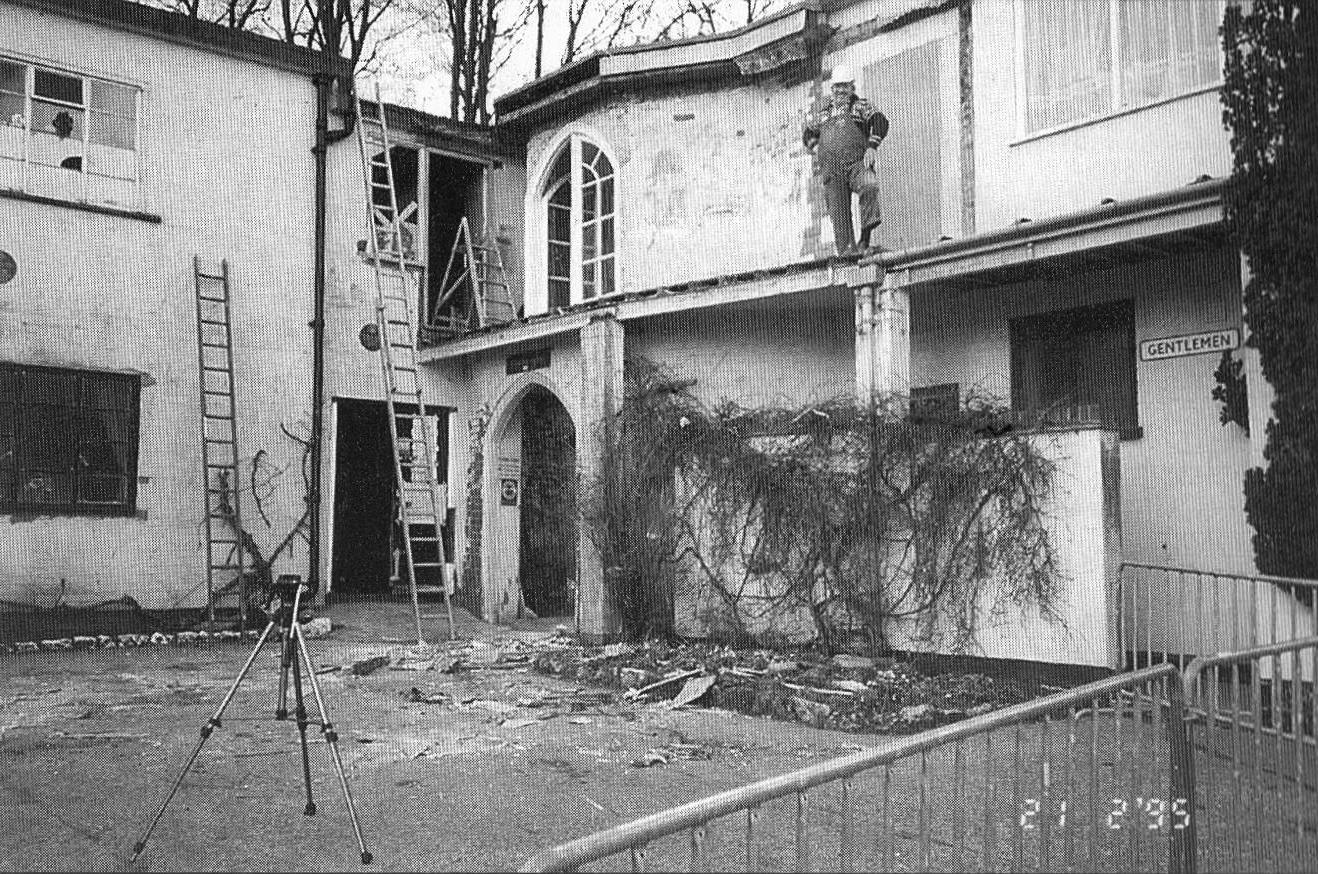|
Lowestoft War Memorial Museum
The Lowestoft War Memorial Museum is a museum located in Lowestoft in the English county of Suffolk. It is housed in the World War II headquarters of the Royal Naval Patrol Service in Sparrows Nest Gardens in the north of the town. The museum is dedicated to all of the people of Lowestoft who served during World War I and World War II. It was opened in 1995, to coincide with the 50th anniversary of VE day on 8 May that year.Lowestoft war museum needs you! ''Lowestoft Journal'', 3 March 2014. Accessed 29 March 2014. The museum is operated by volunteers and is open on some weekends and school holidays during the summer period. Inside the museum is a small |
Lowestoft
Lowestoft ( ) is a coastal town and civil parish in the East Suffolk district of Suffolk, England.OS Explorer Map OL40: The Broads: (1:25 000) : . As the most easterly UK settlement, it is north-east of London, north-east of Ipswich and south-east of Norwich, and the main town in its district. The estimated population in the built-up area exceeds 70,000. Its development grew with the fishing industry and as a seaside resort with wide sandy beaches. As fishing declined, oil and gas exploitation in the North Sea in the 1960s took over. While these too have declined, Lowestoft is becoming a regional centre of the renewable energy industry. History Some of the earliest signs of settlement in Britain have been found here. Flint tools discovered in the Pakefield cliffs of south Lowestoft in 2005 allow human habitation of the area to be traced back 700,000 years.S. Parfitt et al. (2006'700,000 years old: found in Pakefield', ''British Archaeology'', January/February 2006. Retrieve ... [...More Info...] [...Related Items...] OR: [Wikipedia] [Google] [Baidu] |
Robert Sparrow (1741–1822)
Robert Sparrow (1741–1822) was an English country landowner and politician who sat in the House of Commons between 1774 and 1775. Life Sparrow was the eldest son of Robert Sparrow of Worlingham and his wife Anne Bence, daughter of Robert Bence of Henstead, Suffolk and was baptized on 24 October 1741. He was educated at Bury St Edmunds Grammar School, and was admitted at Emmanuel College, Cambridge in 1759 and at Middle Temple in 1759. He succeeded his father to Worlingham Hall on 20 October 1765. Sparrow was returned as Member of Parliament for Bedford at the 1774 general election on the interest of his brother-in-law Sir Robert Bernard, 5th Baronet but was unseated on petition 23 March 1775. In his short period in Parliament he voted with Opposition on, 22 February 1775 regarding John Wilkes and does not appear to have spoken in the House Sparrow was High Sheriff of Suffolk for 1777–8. He considered standing at Bedford again in 1784 but decided against it. In 17 ... [...More Info...] [...Related Items...] OR: [Wikipedia] [Google] [Baidu] |
World War II Memorials In England
In its most general sense, the term "world" refers to the totality of entities, to the whole of reality or to everything that is. The nature of the world has been conceptualized differently in different fields. Some conceptions see the world as unique while others talk of a "plurality of worlds". Some treat the world as one simple object while others analyze the world as a complex made up of many parts. In ''scientific cosmology'' the world or universe is commonly defined as " e totality of all space and time; all that is, has been, and will be". '' Theories of modality'', on the other hand, talk of possible worlds as complete and consistent ways how things could have been. ''Phenomenology'', starting from the horizon of co-given objects present in the periphery of every experience, defines the world as the biggest horizon or the "horizon of all horizons". In ''philosophy of mind'', the world is commonly contrasted with the mind as that which is represented by the mind. ''Th ... [...More Info...] [...Related Items...] OR: [Wikipedia] [Google] [Baidu] |
World War I Memorials In England
In its most general sense, the term "world" refers to the totality of entities, to the whole of reality or to everything that is. The nature of the world has been conceptualized differently in different fields. Some conceptions see the world as unique while others talk of a "plurality of worlds". Some treat the world as one simple object while others analyze the world as a complex made up of many parts. In ''scientific cosmology'' the world or universe is commonly defined as " e totality of all space and time; all that is, has been, and will be". '' Theories of modality'', on the other hand, talk of possible worlds as complete and consistent ways how things could have been. ''Phenomenology'', starting from the horizon of co-given objects present in the periphery of every experience, defines the world as the biggest horizon or the "horizon of all horizons". In ''philosophy of mind'', the world is commonly contrasted with the mind as that which is represented by the mind. ''Th ... [...More Info...] [...Related Items...] OR: [Wikipedia] [Google] [Baidu] |
World War II Museums In The United Kingdom
In its most general sense, the term "world" refers to the totality of entities, to the whole of reality or to everything that is. The nature of the world has been conceptualized differently in different fields. Some conceptions see the world as unique while others talk of a "plurality of worlds". Some treat the world as one simple object while others analyze the world as a complex made up of many parts. In ''scientific cosmology'' the world or universe is commonly defined as " e totality of all space and time; all that is, has been, and will be". '' Theories of modality'', on the other hand, talk of possible worlds as complete and consistent ways how things could have been. '' Phenomenology'', starting from the horizon of co-given objects present in the periphery of every experience, defines the world as the biggest horizon or the "horizon of all horizons". In ''philosophy of mind'', the world is commonly contrasted with the mind as that which is represented by the mind. ''T ... [...More Info...] [...Related Items...] OR: [Wikipedia] [Google] [Baidu] |
World War I Museums In The United Kingdom
In its most general sense, the term "world" refers to the totality of entities, to the whole of reality or to everything that is. The nature of the world has been conceptualized differently in different fields. Some conceptions see the world as unique while others talk of a "plurality of worlds". Some treat the world as one simple object while others analyze the world as a complex made up of many parts. In ''scientific cosmology'' the world or universe is commonly defined as " e totality of all space and time; all that is, has been, and will be". '' Theories of modality'', on the other hand, talk of possible worlds as complete and consistent ways how things could have been. ''Phenomenology'', starting from the horizon of co-given objects present in the periphery of every experience, defines the world as the biggest horizon or the "horizon of all horizons". In ''philosophy of mind'', the world is commonly contrasted with the mind as that which is represented by the mind. ''Th ... [...More Info...] [...Related Items...] OR: [Wikipedia] [Google] [Baidu] |
Military And War Museums In England
A military, also known collectively as armed forces, is a heavily armed, highly organized force primarily intended for warfare. It is typically authorized and maintained by a sovereign state, with its members identifiable by their distinct military uniform. It may consist of one or more military branches such as an army, navy, air force, space force, marines, or coast guard. The main task of the military is usually defined as defence of the state and its interests against external armed threats. In broad usage, the terms ''armed forces'' and ''military'' are often treated as synonymous, although in technical usage a distinction is sometimes made in which a country's armed forces may include both its military and other paramilitary forces. There are various forms of irregular military forces, not belonging to a recognized state; though they share many attributes with regular military forces, they are less often referred to as simply ''military''. A nation's military may ... [...More Info...] [...Related Items...] OR: [Wikipedia] [Google] [Baidu] |
Slide Show
A slide show (slideshow) is a presentation of a series of still images (Presentation slide, slides) on a projection screen or electronic display device, typically in a prearranged sequence. The changes may be automatic and at regular intervals or they may be manually controlled by a presenter or the viewer. Slide shows originally consisted of a series of individual reversal film, photographic slides projected onto a screen with a slide projector. When referring to the video or computer-based visual equivalent, in which the slides are not individual physical objects. A slide show may be a presentation of images purely for their own visual interest or artistic value, sometimes unaccompanied by description or text, or it may be used to clarify or reinforce information, ideas, comments, solutions or suggestions which are presented verbally. Slide shows are sometimes still conducted by a presenter using an apparatus such as a carousel slide projector or an overhead projector, but now ... [...More Info...] [...Related Items...] OR: [Wikipedia] [Google] [Baidu] |




